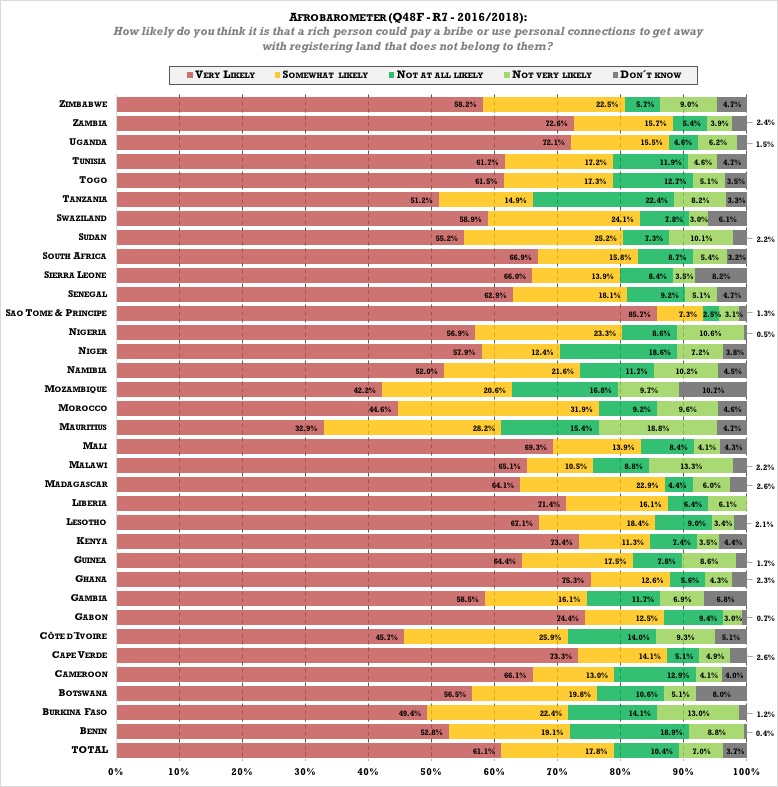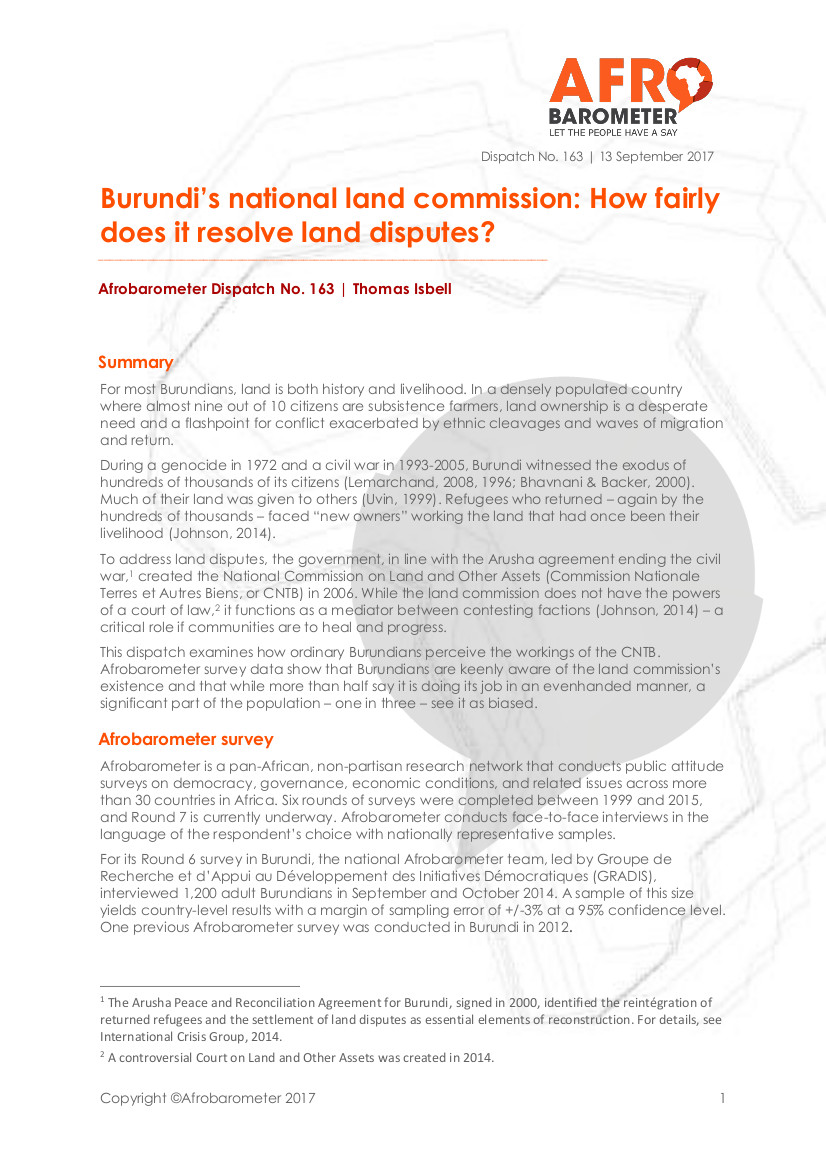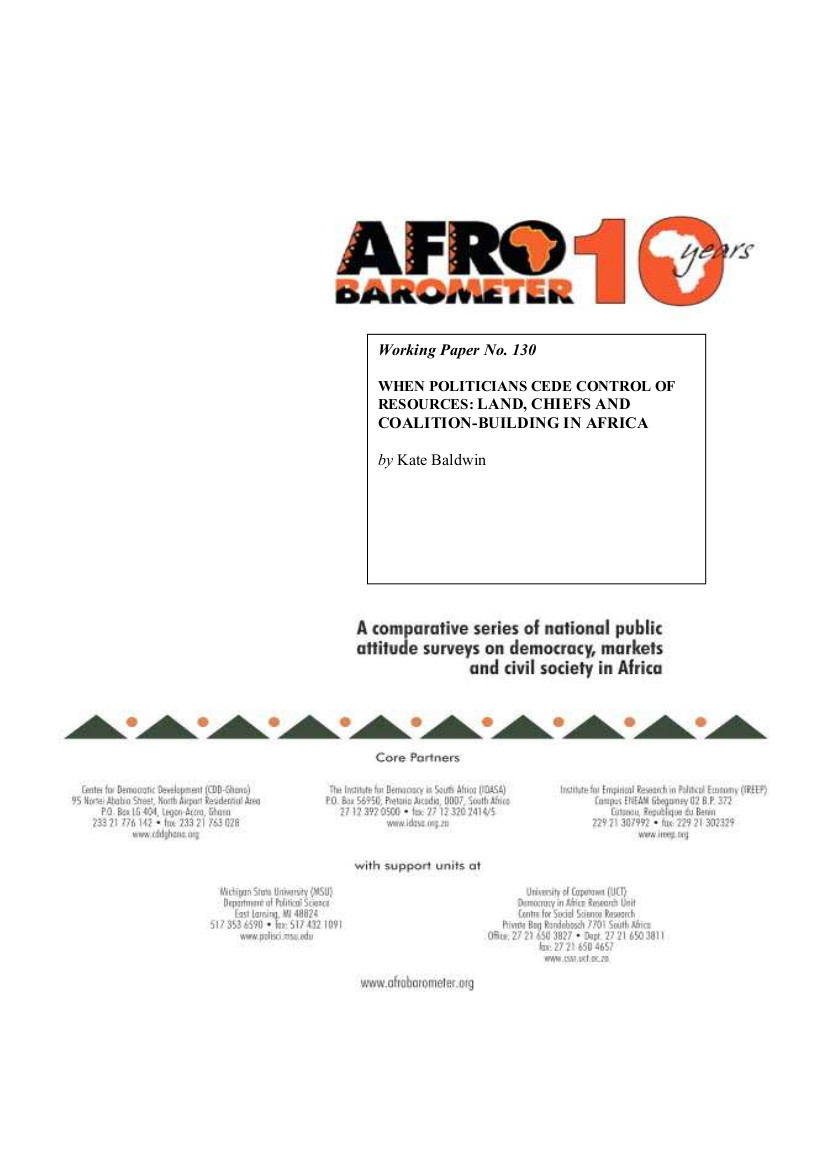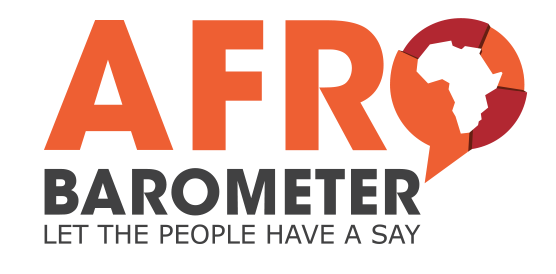
Afrobarometer is a pan-African, non-partisan research network that conducts public attitude surveys on democracy, governance, economic conditions, and related issues in more than 35 countries in Africa. Afrobarometer surveys collect and publish high-quality, reliable statistical data on Africa, which is freely available to the public.
The latest round of the Afrobarometer Survey (Round 7 - 2016/2018), for the first time, collected also opinions and perceptions around land-related issues, including women land rights and corruption in the land sector.
The Land Portal presents only a subset of the data gathered during the 7th round of the Afrobarometer survey, focusing only on indicators that are land-related.
For instance, corruption in the land sector emerged as a crucial and widespread concern, with almost four of every five respondents believing that is likely or very likely that:
a rich persons could pay a bribe or use personal connections to get away with registering land that does not belong to them.
Source: elaboration on Afrobarometer data, Round 7.

Source: elaboration on Afrobarometer data.
For more information on the Afrobarometer, please visit the website afrobarometer.org.
Why the Afrobarometer is important?
With more than 250,000 African citizens reached since 1999, Afrobarometer is the most important independent opinion poll in Africa.
The latest round of the Afrobarometer Survey (Round 7 - 2016/2018) is of particular interest for the land governance community. Indeed, for the first time, Afrobarometer collected also opinions and perceptions around land-related issues, including women land rights and corruption in the land sector.
What is the status?
Completing more than 50,000 interviews in 34 countries, Afrobarometer has successfully wrapped up data collection for its seventh pan-African round of public-attitude surveys.
What is the methodology?
Afrobarometer has been measuring the social, political and economic atmosphere in more than 30 countries in Africa for the last 20 years, by conducting face-to-face interviews with a randomly selected sample of 1,200 or 2,400 people in each country.
To ensure high data quality, Afrobarometer works with national partners in each country. The national partners are responsible for training interviewers before collecting data for Afrobarometer. They make sure the interviewers have the right skills and qualifications to perform an Afrobarometer survey.
Which Afrobarometer data are on display on the Land Portal?
The selection of Afrobarometer indicators hosted on the Land Portal is based on the follwing questions :
- Access to information: land ownership (Q18b) -- How likely is it that you could get the following information from government or other public institutions, or haven’t you heard enough to say? If you went to the local council to find out who owns a piece of land in your community? (Not at all likely; Not very likely; Somewhat likely; Very likely; Don’t know)
- Women should have equal right to land (Q38e) -- For each of the following statements, please tell me whether you disagree or agree: Women should have the same rights as men to own and inherit land. (Strongly disagree; Disagree; Neither agree nor disagree; Agree; Strongly agree; Don’t know)
- Ordinary person: pay bribe to register land not theirs (Q48c) -- In this country, how likely do you think it is that an ordinary person could pay a bribe or use personal connections to get away with: Registering land that does not belong to them? (Not at all likely; Not very likely; Somewhat likely; Very likely; Don’t know)
- Rich person pay bribe to register land not theirs (Q48f) -- And in this country, how likely do you think it is that a rich person could pay a bribe or use personal connections to get away with: Registering land that does not belong to them? (Not at all likely; Not very likely; Somewhat likely; Very likely; Refused; Don’t know)
- Women and men have equal chance to own/inherit land (Q77d) -- For each of the following statements, please tell me whether you disagree or agree, or haven’t you heard enough to say? In our country today, women and men have equal opportunities to own and inherit land. (Strongly disagree; Disagree; Neither agree nor disagree; Agree; Strongly agree; Don’t know)
Q18B - Access to information: land ownership
Q48C - Ordinary person pay bribe to register land not theirs
Q48F - Rich person pay bribe to register land not theirs
Q38E - Women should have equal right to land
Q77D - Women and men have equal chance to own/inherit land
Related content on the Land Portal
Gender equality in Burundi: Why does support not extend to women's right to inherit land?
With 27,834 km² of surface area and a population of 10.5 million, Burundi’s population density is seven times that of Tanzania and second only to Rwanda’s on the African mainland (World Bank, 2014). Its population grows at an annual rate of 2.4%, and more than 90% of the population lives primarily on agriculture.
Burundi’s national land commission: How fairly does it resolve land disputes?
For most Burundians, land is both history and livelihood. In a densely populated country where almost nine out of 10 citizens are subsistence farmers, land ownership is a desperate need and a flashpoint for conflict exacerbated by ethnic cleavages and waves of migration and return.
When politicians cede control of resources: Land, chiefs and coalition-building in Africa
Why would politicians give up power over the allocation of critical resources to community leaders? This article examines why many African governments have ceded power over the allocation of land to non-elected traditional leaders. In contrast to the existing literature, which suggests traditional leaders’ power is a hang-over from the colonial period that has not been eliminated due to weak state capacity, I argue that African politicians often choose to devolve power to traditional leaders as a means of mobilizing electoral support from non-coethnics.
Land disputes in Liberia: Disputes from below, 2008
An Afrobarometer survey was conducted for the first time in Liberia in 2008. The findings enable us to assess popular opinions on land disputes and the likely consequences for peace and stability in Liberia.
Land redistribution: South Africans prioritize land taken in forced removals, support ‘willing seller’ approach
In 1913, South Africa’s Land Act set aside 87% of the country’s land for exclusive use and ownership by white people, helping to divide the nation into a relatively prosperous white heartland and a cluster of increasingly impoverished black reserves on the periphery and within cities (Walker, 2017). More than a century later, South Africa is still struggling to redress this historical injustice and the inequality it continues to foster.
Donors:







